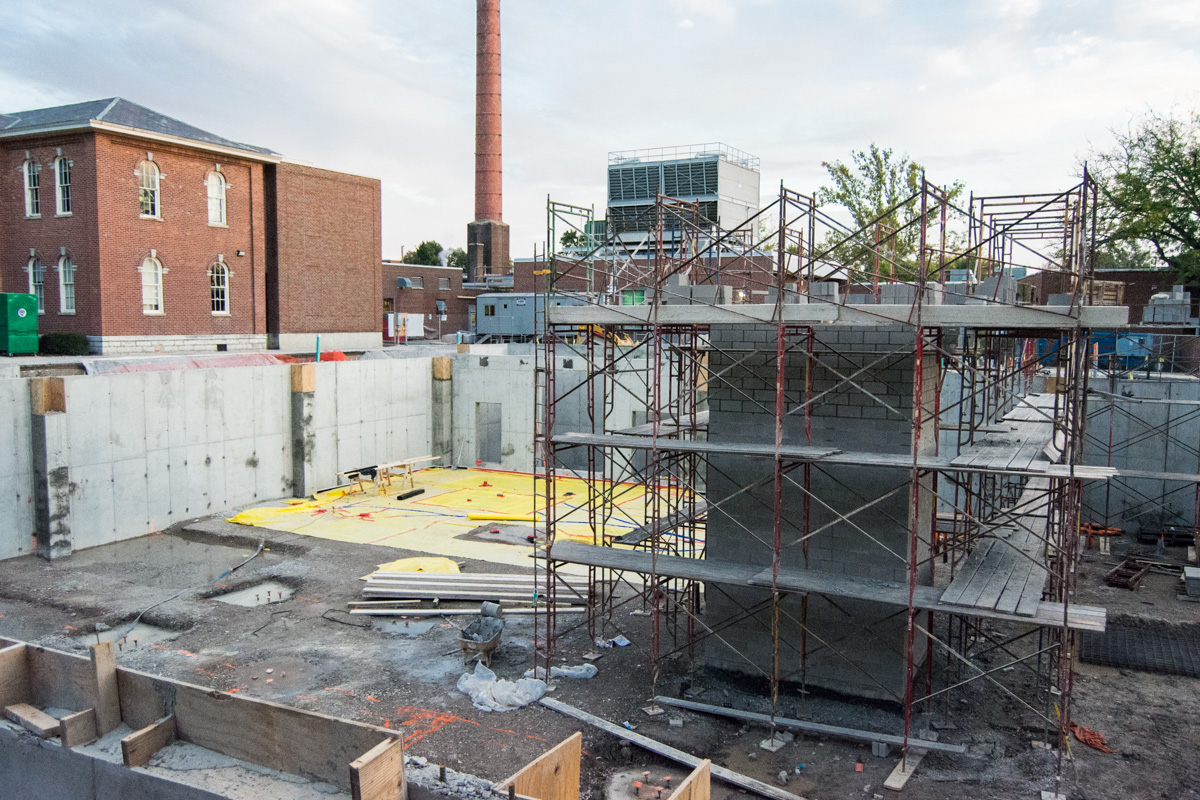When the new Convergent Media Center (CMC) officially opens its doors next year, it may be accessible to students around-the-clock. The university’s administrators are struggling to make a decision for they want to ensure a balance of safety and accessibility.
Currently, the first floor of Blackmore Library is the only 24-hour space on campus. All other Capital buildings are open from 7 a.m. to 10 p.m. Monday through Friday, and only a few, such as the Cap Center, have weekend hours.
The Conservatory of Music and Huber-Spielman Hall are also exceptions to the 10 p.m. rule. Students in possession of a valid ID can swipe their card to access these buildings until 1:30 a.m. each night. However, all students are required to leave the two buildings before 2 a.m.
Some students find these closing times to be rather arbitrary and choose to ignore them. But, staying in either building after 2 a.m. is technically considered trespassing, and the university is within its right to pursue criminal charges.
Public safety does not often find students in Huber-Spielman or the Conservatory after the 2 a.m. cut-off, and when they do, first-time offenders are usually just given warnings. While these time limits may seem arbitrary to some students, public safety maintains that they are important.
“Student safety and the protection of assets are public safety’s primary concern,” said public safety’s police chief Frank Fernandez. “It would be a risk to students to allow access to these buildings all night. The [Conservatory] has so many entrances, some of which do not have alarms, that it is a risk to students.”
Many recording studios in the Conservatory are sound proof, which makes theft easier.
Huber-Spielman houses computer labs and art studios that contain valuable equipment.
The CMC will also have a large number of high-value assets that need protecting.
So why then are students allowed to access the library after hours?
“The only reason the library is open 24/7 is because of all the added investments in security. And still, it’s only the first floor,” Fernandez said.
If the CMC is to be open to students 24 hours a day, then the university will need to make the necessary investments in security, including things like door alarms, cameras, and card readers. Installing these security measures in a new building is a complicated and potentially expensive process.
Even with the best security investments, no building can be perfectly secure, and students working late at night could be putting themselves at risk. There are many scenarios in which someone who does not have authorization could still enter a building.
“They may follow a student through a closing door, or they may just hide somewhere until the building closes. Somewhere no camera can look, like in a bathroom,” Fernandez said.
However, these issues are not new to campus. Students frequently hold the door open for others without asking for their ID, and it has not presented a great danger to students. There is always going to be a trade-off between security and student freedom, but the question is how far the university goes in either direction.
“As a professor, I see both sides,” said Betsy Pike, director of media and film, and assistant professor in the department of communications. “Sure there is valuable equipment that we want to protect, but students should still be able to get their work done. And I know a lot of students work on papers and projects late at night.”
Many students throughout the university pull ‘all nighters’ when working on last minute projects. And for many students, these projects require advanced equipment, specifically equipment not housed in the library or their dorm.
This notion was the driving force behind the current extended hours of both the Conservatory and Huber-Spielman, and now many faculty and students would like to see the CMC remain opened even longer.
One idea being considered to improve the new buildings security is to restrict after hours access to students that have a legitimate reason to be using the building. University dorms function in a similar way, as only residents are allowed access.
“It could be done. I already assign every card holder access levels at the beginning of the year. And I would just have to create an access group for the new building,” said Andy Rogers, IT help desk manager. “It would be a little time consuming, but that’s what they pay me for.”
While the necessary technology certainly exists, and it is logistically possible, there is no guarantee that the new building will be open 24/7. The university’s administration, facilities management, and public safety have not yet reached a decision regarding the hours of the new building, though they will continue working toward one.
They have indicated that their final decision will based on the level of student demand for the workspaces within the CMC.
Many of the university’s major and minor academic programs will relocate to the new building, including music technology, communication, journalism, creative writing, professional writing, electronic media and film, studio art, art therapy, and marketing. It will also be the new site of CapTV, WXCU Radio, and the Chimes.
Students and faculty from these programs have the potential to greatly influence the decision of Capital’s administration.
Construction is expected to be completed by fall 2016, with classes beginning in the CMC the following spring semester.

